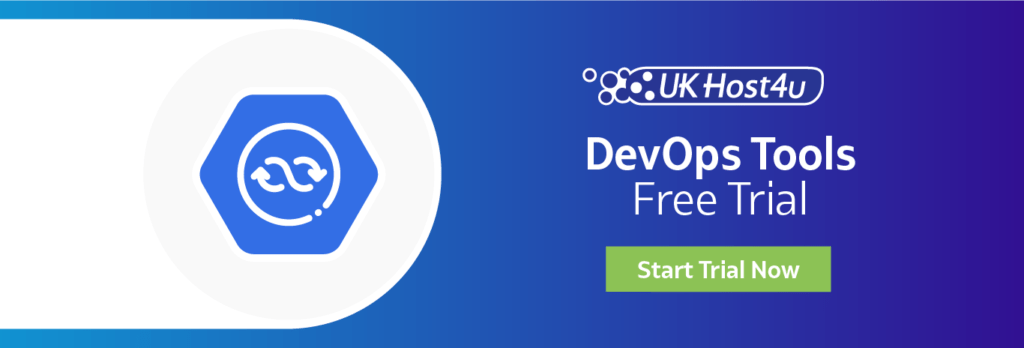How Python is Used in DevOps – Reasons for Using
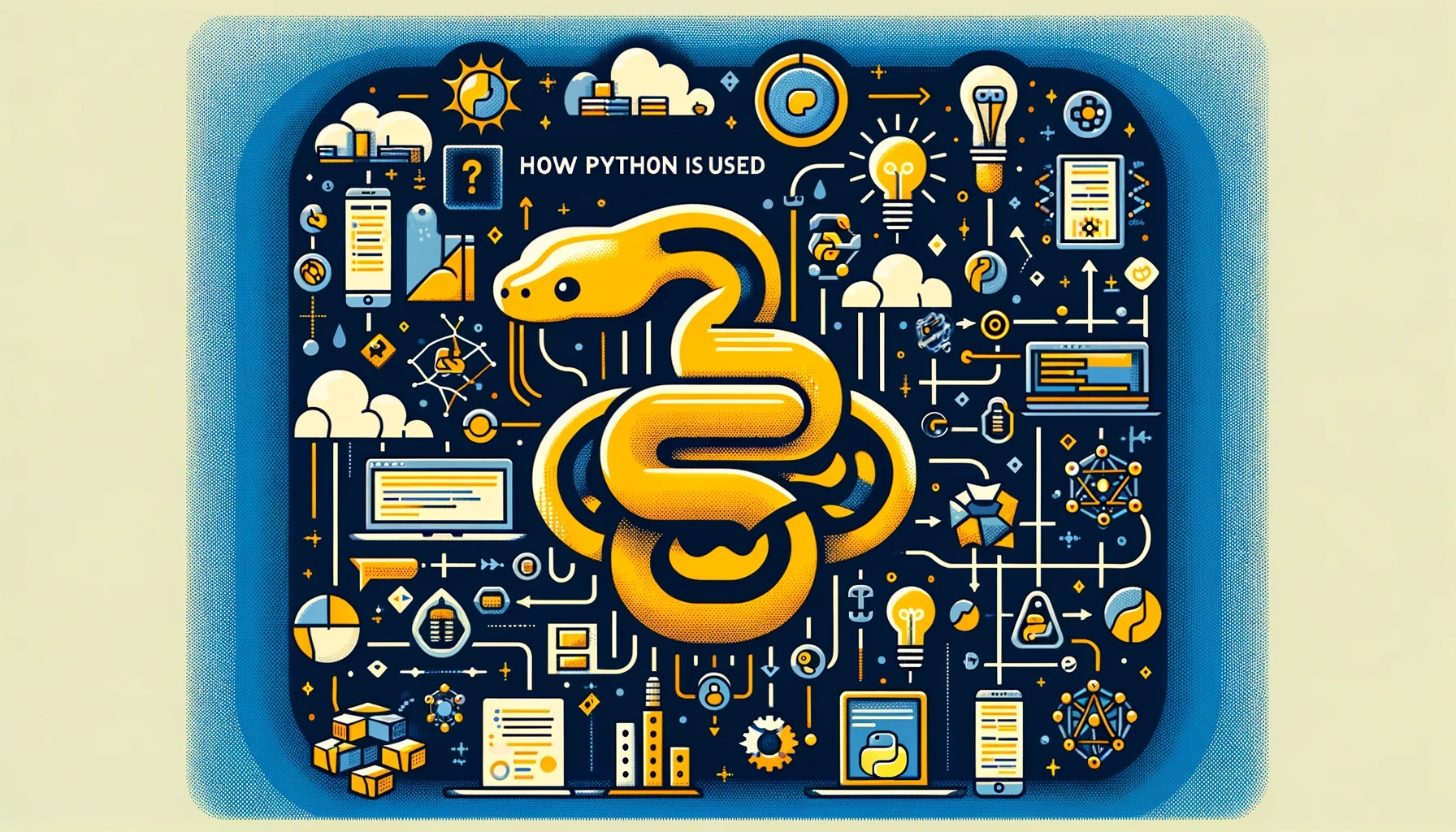
DevOps and Python
Communication between development and operations teams has always faced friction. With constant challenges, updates and fixes, operations and developments teams are often disconnected from each other in many senses. And management can make it somehow quite difficult as often both don’t share the same objectives nor the same constraints.
Dev & Ops imply both functional and infrastructural changes, as they run separately, this can cause some downtimes, bugs, mistakes and unnecessary struggles.
As we said, problems and objectives can be different from the Ops and the Devs, making the management of the platform not always seamless.
In order to unify the Development and Operations teams we offer a platform that gets rids of this disconnection that existed, so they can collaborate more easily on the same project. This completely streamlines the coding, building, testing, shipping and management of their projects.
Some of the most famous programming languages are Python, Java, Ruby, PHP, Node.js, .NET and Go Lang. You can find them all within your topology wizard when creating a new environment for you web applications or sites. Being user friendly and the large amount of libraries makes its automation very easy, and we have brought even more support to developers using our Python DevOps Tools.
Use the short outline below to navigate easily through the article:
- Best ways to use Python.
- Benefits of using Python.
- How to use Python?
- Reasons of using Python.
- How Python and DevOps work together?
Best ways to use python in DevOps
You can do (almost) anything in DevOps using the Python programming language, from the automation of the DevOps life cycle to CI/CD pipeline and much more, such as:
- Automate the DevOps life cycle management.
- Automate the infrastructure deployment and configuration management.
- Use Python to modify, configure and automate the DevOps tools.
- Use Python for the CI/CD pipeline automation.
- Python as a script can be used for automating the small day to day checking and monitoring tasks.
- Deploy applications automatically from Dev to QA to Prod environment.
- Ensure that DevOps applications are platform-independent by smart and simple programming using Python.
- Automate the operational tasks of the sysadmin which is repetitive and periodic.
- Manage and control the infrastructures using Python programming tools.
Examples using Python in DevOps
The main purpose of using Python in DevOps is to make the automation scripts. If you want to deploy your code in containers or VM’s, or deploy apps in development/production machines, you can run the automation script to deploy the apps.
Python scripting and coding can be used to:
- Make automation tools to check on servers
- Make the automation tools to gather application statistics.
- Tools to check on the network devices, disk drives, and also to build failure models.
- Make the GUI to make communication easier.
Benefits of using Python in DevOps
Python and DevOps combined can be used in synergy for building next-generation solutions. You can build any type of application, use multiple platforms, get work done by diverse and cross-functional teams, and have a great user experience.
- Efficient: Code can be written with best practices, process and patterns, bringing in remarkable efficiency in the codin process. Efficiency is certain when it comes to Python as a coding language and DevOps as a practice.
- Agile Programming: Python has an easy to remember and direct syntax that helps all developers work. It is also used for deployment automation and web development, as it is used for scripting in DevOps.
- Adapt to Changes: Python in DevOps culture helps to make scalable, adaptable, and flexible applications with efficient and effective processes. Change is one of the key things that organizations must be prepared to adopt and adapt.
- Ease things: Python eases scripting, automation, and programming thanks to its straightforward syntax and vast libraries. It helps organizations adapt to changes, automates deployment and development, and handle complex challenges. It is a language that can be used by both novice and experienced developers.
- Great combination: DevOps and Python is not at the end of the road but has many more years of great future in building the applications, automate the tasks increase productivity, improve efficiency, quality, and meet ever-changing customer expectations.
Want to try our Python DevOps Tools? Register today to our 14-Day FREE trial.
How to use Python in DevOps?
Python is an open-source programming language with immense library support. Some of the features and modules can be used for development in other platforms like Java, C#, etc. In this article, we will learn how Python is used for DevOps and the reasons behind it.
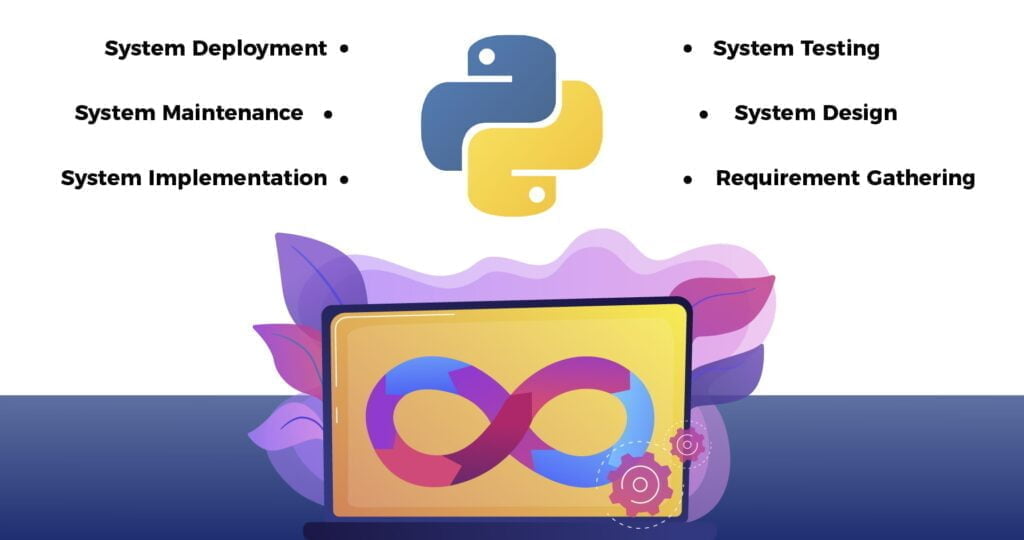
Reasons For Using Python In DevOps
Python and the flexibility it offers, has been found to be quite handy in the IT industry. When it comes to DevOps, the main goal is to reduce the time taken in the DevOps life cycle and improve efficiency. Python offers a structural solution in terms of automating the tasks in each of the stages in the DevOps life cycle.
- Python is one of the best scripting languages. The vast variety of python libraries allows us to write scripts for the improved development life cycle.
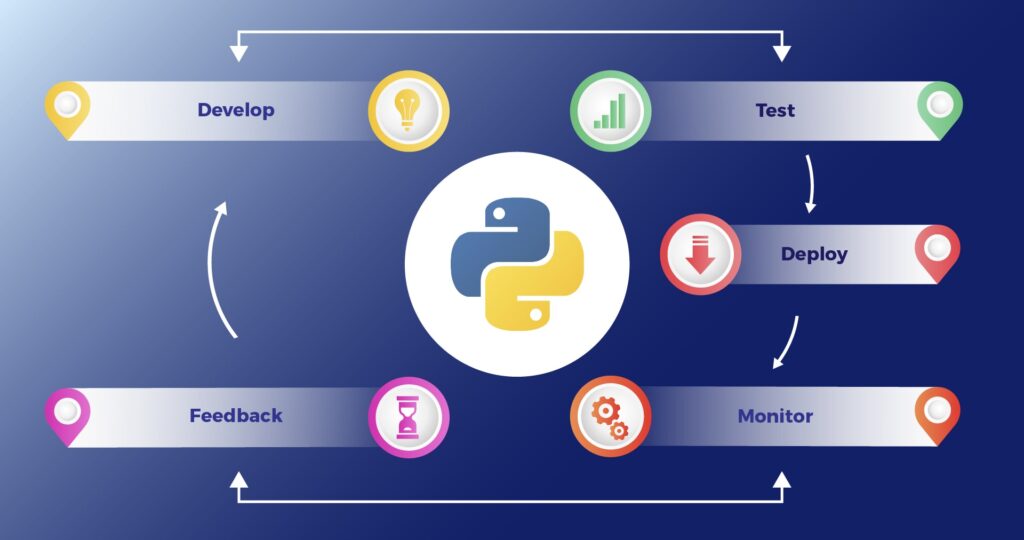
- Python provides the frameworks to write structured and readable automation scripts.
- When it comes to orchestration and infrastructure automation, python is quite useful.
- Python saves time in building utilities thanks to the ease of learning the coding langage.
- Python offers an adaptive feature that results in exploring new tools and technologies without any effort, thanks to its flexibility and adaptability.
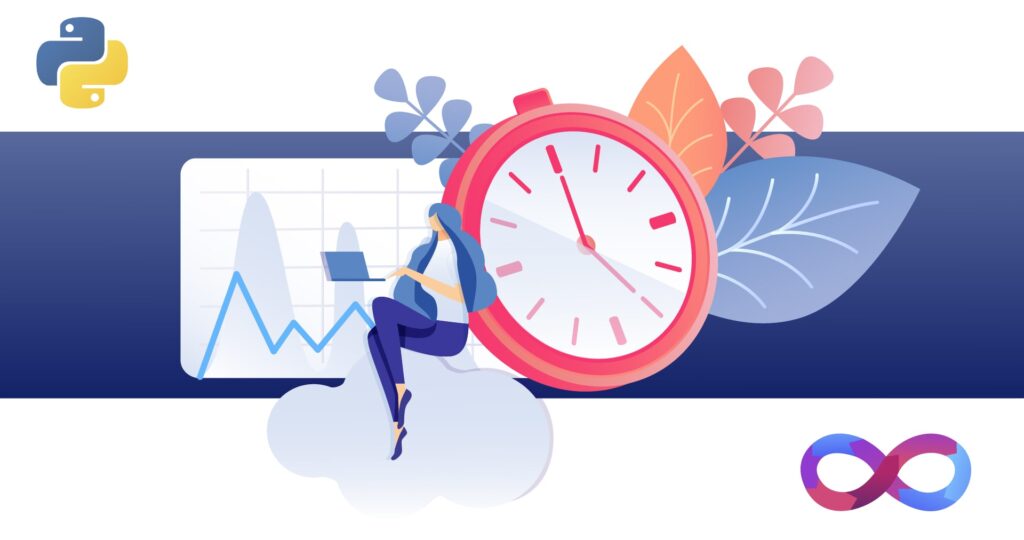
- Even though some tasks realised with python can be achieved with Ruby, people still prefer python because of the easy syntax and readability it gives.
How Python And DevOps Work Together?
The ultimate goal with DevOps is to automate each task in the development life cycle to save time. With its modules and libraries we can do automation using the tools and scripts written in python.
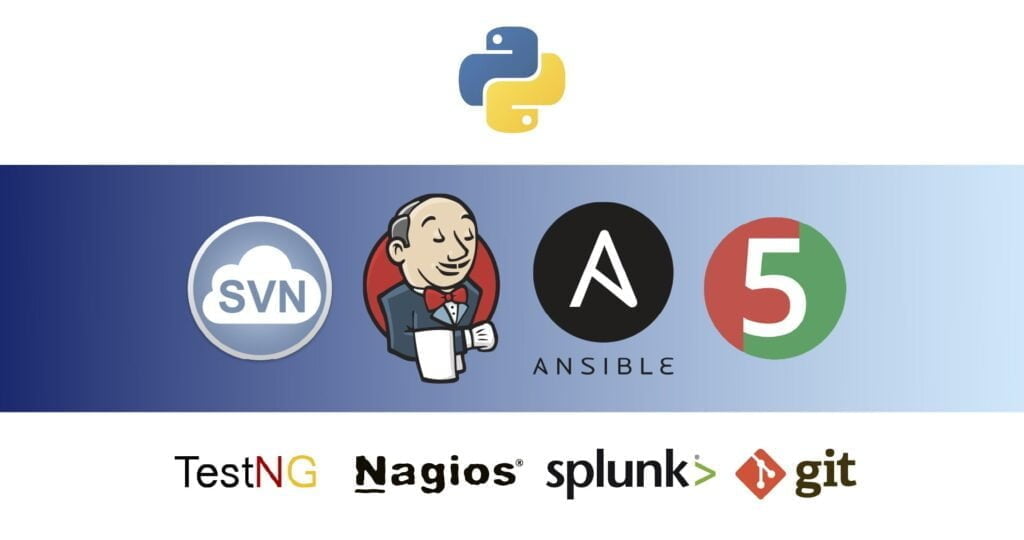
A python automation script is platform-independent and supports multi-tool integration, which makes python a better seeming option.
Here are a few python modules that can be used to write automation scripts for DevOps:
- You can set some useful functions or properties dynamically by writing a python script, using the Gitapi module that interacts with the version control system.
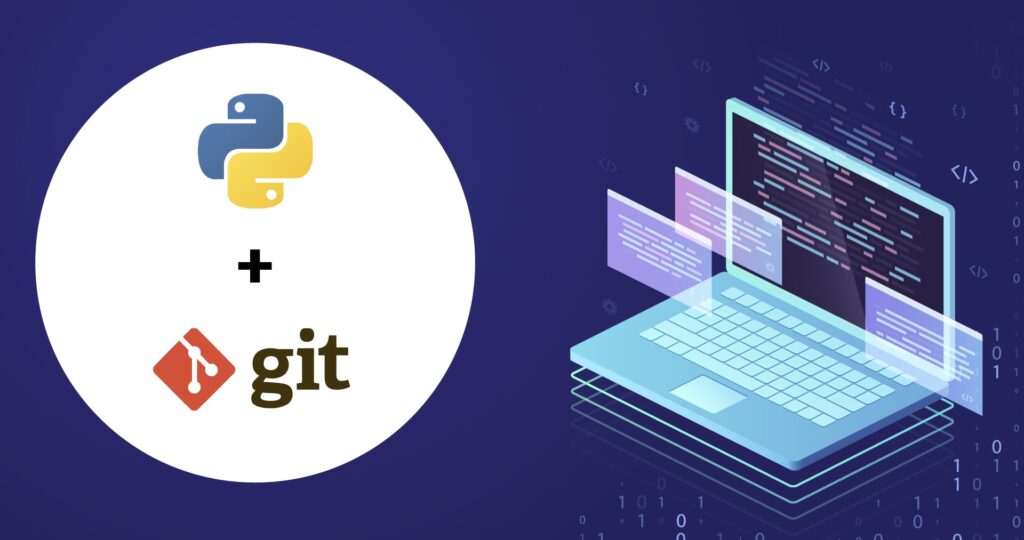
- To be able to move environments, we can use python since we face a problem using bash or PowerShell when the CI environment changes.
- Python has networking, environment-specific and operating system specific modules like OS and sub-process that can handle these details and methods.
- We can implement infrastructure-related automation scripts using python using directly UKHost4u DevOps Tools.
- Python’s OpenStack modules deal with all the operations in the public and private clouds of OpenStack.
- Configuration management tools like UKhost4u Cloud Platform are super easy and user friendly. So in order to add any more custom modules, we write them in python.
- Testing frameworks like Selenium can be used for automation testing using python. Even Django can be used to UnitTests using the built-in testing framework.
- Python has modules for almost all databases for database management tasks such as MongoDB, MySQL, PostgreSQL that you can install in a single click via your environment topology wizard.
- The Monitoring stages in the DevOps stages can also be managed by python modules.
When we look at the chronology of the support and the kind of efficiency that python gives for DevOps, we can clearly see that it handles the complete life-cycle starting from the development cycle to the monitoring cycle, by using DevOps tools like Git, Jenkins, Docker, Kubernetes and many more.

Conclusion
We’ve demonstrated how Python programming and scripting play a vital role in streamlining processes and automating tasks within DevOps. Python’s versatility and simplicity make it a powerful tool for anyone looking to enhance efficiency in their workflows. If you’re ready to dive deeper into Python for DevOps, consider exploring live, real-time projects to sharpen your skills and gain practical experience.
Need Help?
Our Support Team is here for you 24/7 to provide expert assistance. Whether you need help setting up your environment or guidance on your projects, we’re just a click away. Contact us through:
Additionally, don’t miss the chance to register for our FREE DevOps platform trial and explore hosting solutions tailored to your needs. Let us support your journey to mastering DevOps!
